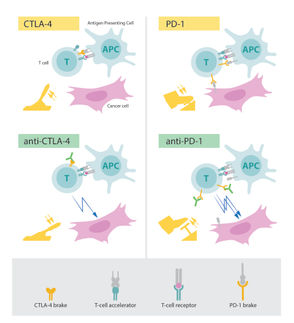UK health institute endorses cholinesterase inhibitors, such as Exelon®, as first-line treatment for Alzheimer's disease
The National Institute for Clinical Excellence (NICE), a division of the National Health Service in the United Kingdom, has finalized an appraisal that recommends the use of cholinesterase inhibitors, rivastigmine, donepezil and galantamine, for first-line treatment in Alzheimer's disease (AD).
"This significant decision by NICE confirms that cholinesterase inhibitors, like Exelon® (rivastigmine), are the only treatment consistently proven effective for Alzheimer's disease," said Joerg Reinhardt, Global Head of Development at Novartis Pharma. "We are pleased that this body of experts has validated the importance of these medications and, in particular, has concluded that treatment can postpone the onset of more severe impairment in early-stage patients.2 This recommendation is a milestone in the fight against Alzheimer's disease."
As a result of the NICE recommendation, diagnosis and treatment of Alzheimer's disease in the UK will be initiated by specialists, but continuing management can be provided by general practitioners. The NICE recommendation may have an impact on the prescription and use of cholinesterase inhibitors in other European countries. Discussions are now underway about forming a health agency that would provide such recommendations for all European countries.
The NICE decision was based on a review of all available data. Published results from clinical trials of cholinesterase inhibitors have proven that treatment with this class of drugs significantly improves symptoms or reduces clinical deterioration when compared with placebo.1.National Institute for Clinical Excellence, "Donepezil, Rivastigmine and Galantamine for the treatment of Alzheimer's disease," Technology Appraisal Guidance, January 2001. Trials with rivastigmine have been conducted with 3300 AD patients in more than 100 centers in ten countries. Over a 26-week period, patients on rivastigmine had dose-related benefits in the three key domains of AD: cognition, global functioning (including behavior), and activities of daily living.2.Schneider LS et al. Systematic review of efficacy of rivastigmine for patients with Alzheimer's disease. Int J Geriatr Psychopharmacol 1998; 1:S26-34. A more recent 52-week study of people with mild to moderate AD suggests that early treatment with rivastigmine may provide benefits on cognitive function that are lost if treatment is delayed.3.Farlow M et al. A 52-week study of the efficacy of rivastigmine in patients with mild to moderately severe Alzheimer's disease. European Neurology 2000; 44.
Topics
Organizations
Other news from the department research and development

Get the chemical industry in your inbox
By submitting this form you agree that LUMITOS AG will send you the newsletter(s) selected above by email. Your data will not be passed on to third parties. Your data will be stored and processed in accordance with our data protection regulations. LUMITOS may contact you by email for the purpose of advertising or market and opinion surveys. You can revoke your consent at any time without giving reasons to LUMITOS AG, Ernst-Augustin-Str. 2, 12489 Berlin, Germany or by e-mail at revoke@lumitos.com with effect for the future. In addition, each email contains a link to unsubscribe from the corresponding newsletter.
Most read news
More news from our other portals
Last viewed contents
Agilent Technologies and Groton Biosystems Sign Co-Marketing Agreement for Pharmaceutical Manufacturing Solutions
Basell launches new Metocene metallocene-based polypropylene grade targeted to customer TWIM
Organon continues to invest in Newhouse Research Centre - New State-of-the-Art automated compound store to transform Organon global drug discovery





























































